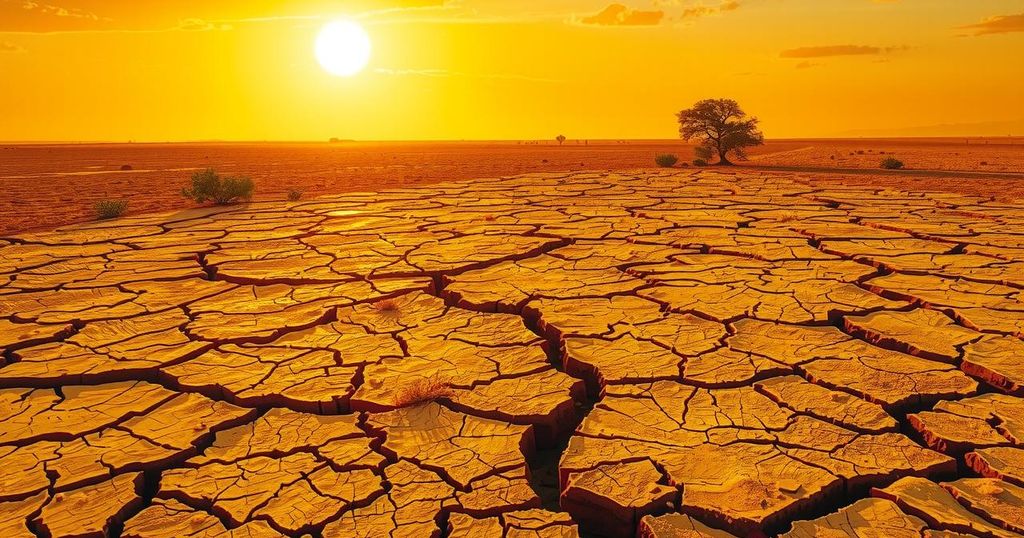Climate change
AF, AFP, AFRICA, CLIMATE, CLIMATE CHANGE, CLIMATE RESILIENCE, ELIZABETH LODOU LOCHAPIO, FOOD SECURITY, IGAD, INTERGOVERN, INTERGOVERNMENTAL AUTHORITY ON DEVELOPMENT, JUBA, KAPOETA, KENYA, KI, KISWENDSIDA GUIGMA, NAIROBI, RED CROSS AND RED CRESCENT, SOUTH SUDAN, WORLD BANK, WORLD WEATHER AT, WORLD WEATHER ATTRIBUTION
Fatima Khan
0 Comments
Impact of Climate Change on South Sudan’s Heatwave Crisis
A recent study indicates that climate change has increased the likelihood of a severe heatwave in South Sudan, disproportionately affecting women and girls. With temperatures reaching 40 degrees Celsius, the government has closed schools and urged citizens to stay home. The study underscores the interconnectedness of climate risks and the struggles faced by the nation, which is enduring both environmental and political challenges.
A recent study indicates that human-induced climate change has significantly increased the likelihood of a severe heatwave in South Sudan, adversely affecting women and girls in particular. The nation, struggling with instability since its independence in 2011, lacks the necessary resources to tackle growing environmental challenges. Current political unrest raises concerns that the 2018 peace agreement ending a five-year civil war may be compromised.
The February heatwave has resulted in temperatures reaching 40 degrees Celsius (104 degrees Fahrenheit), prompting the government to close schools in the capital, Juba, as an estimated 12 students collapsed daily. The World Weather Attribution study emphasizes that climate change has exacerbated the heat, making it at least 2 degrees Celsius hotter and ten times more likely to occur.
Kiswendsida Guigma, a climate scientist and study co-author, noted, “Climate change is clearly making life even more difficult in South Sudan, a country already facing economic challenges and periods of instability.” The study highlighted the difficulty of following safety directives in South Sudan, as many individuals work outdoors in poorly insulated homes without cooling systems.
Access to water remains a critical issue, with only 8.4 percent of the population having electrical power in 2022. Women shoulder much of the burden, as essential chores like water collection and cooking fall predominantly on them. Elizabeth Lodou Lochapio from Kapoeta remarked, “They have to go out there to make a living despite the heatwave.”
Sarah Kew, a researcher at the Netherlands Meteorological Institute, stated, “Climate change means that dangerous heatwaves exceeding 40 degrees are becoming the new normal in South Sudan.” The study indicates that such heat events, once rare, are now occurring biannually, creating significant challenges for the population. The study also projects that elevated temperatures are expected to continue through March.
In conclusion, the study underscores that climate change is exacerbating the challenges faced by South Sudan, particularly impacting vulnerable groups such as women and girls. With extreme temperatures becoming increasingly common, the country must adapt to these new realities amidst ongoing political instability and resource scarcity. The findings encourage a broad awareness of the region’s dire environmental and social conditions to prioritize effective responses and mitigation strategies.
Original Source: www.france24.com




Post Comment